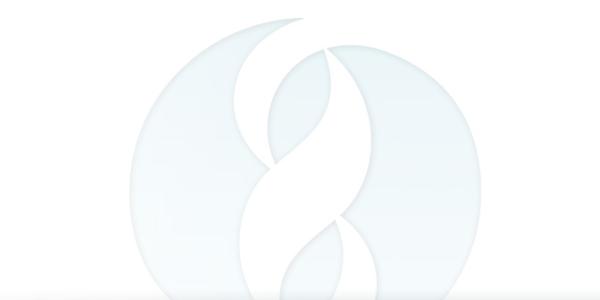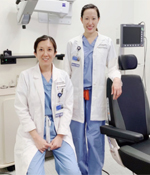
This article first appeared in the medical column “Ask-the-Doc” in the World Journal.
California has been in quarantine for some time now due to the COVID-19 pandemic. Many activities have been switched to virtual, including doctor visits. Using computers and cellphones to complete a doctor visit is referred to "virtual medicine” or “telemedicine."

From left: Physicians Karen Fann and Katrina Chaung note that telemedicine has many advantages and is increasingly becoming mainstream
World Journal
Monday, April 20, 2020
by Richard Lee
Monday, April 20, 2020
by Richard Lee
California has been in quarantine for some time now due to the COVID-19 pandemic. Many activities have been switched to virtual, including doctor visits. Using computers and cellphones to complete a doctor visit is referred to "virtual medicine” or “telemedicine."
"When the concept of telemedicine first emerged, it seemed to always be the second option,” said Dr. Karen Fann. “I still believed that face-to-face consultation was the mainstream method. But now, with this epidemic, telemedicine has become another good option, a kind of tool that has many advantages over in-person visits."
Traditionally, medicine is practiced face-to-face, where telemedicine is used in more special cases. However, today many patients are under quarantine at home and may fear exposure to COVID-19 by going to the doctor. Many doctors responded by introducing telemedicine to help with diagnoses and treatment via video conferencing or phone consultation. As a result, people are becoming more comfortable with virtual medicine.
Dr. Fann noted that while the risk of COVID-19 is serious and people should try to stay at home as much as possible, seeking timely medical help is still important for many medical conditions to prevent delay of necessary treatment. Telemedicine is a good compromise. Patients do not need to go out, saving travel time. Insurance companies still pay their usual rates, even if patients see their doctors virtually. For examinations that cannot be completed by video, an initial diagnosis can still be determined.
When the pandemic passes, telemedicine will become more commonplace. For example, a patient may need to take half a day off work to go into their doctor’s office for follow-up care. With telemedicine, that patient may be able to go to the appointment while in the comfort of their own office by sitting in front of a computer or using their cellphone.
Dr. Katrina Chaung gave an example of how she helped a high-risk elderly patient using telemedicine. The patient, in her 60s with a history of cancer, had a swollen cheek for several days. The patient became worried when her condition did not improve, and she was unable to determine the cause. She was afraid of going out due to risk of COVID-19. Dr. Chaung conducted a video conference with the patient and diagnosed her condition as an abscessed tooth. The patient was then referred to her dentist for timely treatment. "If the condition had been left undiagnosed and untreated, the situation could have quickly deteriorated," said Dr. Chaung.
Both physicians pointed out that telemedicine procedures are like traditional medical procedures. People call or make an appointment online and list their reasons for the visit. The doctor can then diagnose via video conference or with use of photographs taken by the patient. Of course, due to some limitations, such as certain equipment, not all diagnoses can be made virtually. But, in many cases, telemedicine enables the doctor to determine a diagnosis.
Skip
Clinician Profiles
Karen Fann, D.O. is an ear, nose, and throat (ENT) surgeon. Dr. Fann received her medical degree from Des Moines University College of Osteopathic Medicine and completed her residency at Grandview Medical Center and Kettering Medical Network in Dayton Ohio. She holds board certifications in otolaryngology and facial plastic surgery. In addition to English, she speaks fluent Mandarin Chinese.
Katrina Chaung, M.D. is a head and neck surgeon who treats ear, nose, and throat (ENT) conditions. Dr. Chaung received her medical degree at Northwestern University Feinberg School of Medicine in Chicago, Illinois, and completed her residency at the Northwestern University McGaw Medical Center. She completed fellowship training at Georgia Regents University in Augusta, Georgia. In addition to English, she speaks Mandarin Chinese and is also semi-fluent in Taiwanese.
This article first appeared in the World Journal and the Summer 2020 issue of Chinese Health Initiative Wellness eNewsletter.

